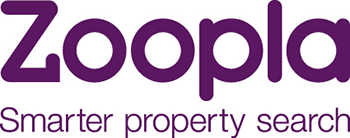
Is a Limited Company the right option for Buy to Let ?
With George Osborne's 2015 Summer Budget reducing mortgage interest relief for landlord holding property in there personal names - Limited Company Buy to Let has become an overnight hit. This is due to the added Tax benefit of a Limited Company being able to retain profits preventing pushing property investors into higher rate tax payers and the mortgage interest relief not applying to Limited Companies. Unfortunately its not as simple as comparing Limited Company Buy to let to properties in a personal name on this single issue. The tax consequences are plentiful and burdens wide ranging from costs to publishing your accounts.
Lets compare some of the Advantages and Disadvantage of Limited Company Buy to Let:
Advantages
Higher Tax Relief
From 2017 to 2020 the amount of Buy to Let Tax relief individual landlords can claim back will progressively cut from a maximum of 45% to 20% for high rate tax payers. However, this change does not affect Limited Companies. Therefore if you are a top rate tax payer, the tax payable via a Limited Company will be lower than tax on individual income.
No tax on dividends <£5,000 for individuals
From April 2016, the Dividend Tax Credit will be replaced by a new tax-free Dividend Allowance of £5,000. This means you can potentially receive tax free dividend income form your investment properties
No income tax when reinvesting profits to secure further properties
You can grow your BTL portfolio more quickly within a Limited Company as there will be no income tax on the retained profit, thus allowing more cash to re-invest. Although corporation tax is payable on trading profits (20%; 2015/16 reducing to 18% by 2020), this is lower than the higher income tax rate (40% for £31,786 to £150,000; 2015/16).
Personal funds can be drawn back out of the company
Any investment you personally make into the Limited Company (e.g. the mortgage deposit), they can draw back out of the company if classed as a Directors Loan. (This is lender specific, as your Buy to Let Mortgage Broker if applicable.)
Potential Personal Tax Savings
The rate of Corporation Tax is currently 20% which means your tax liability is reduced compared to if you are paying income tax as a higher rate tax payer at 40%.
With funds being able to be retained in the limited company you can control how much income is taken personally therefore reduce your potential income tax liability.
Easier Change of Ownership
The company will own the property - the companies directors or shareholders can be changed. You can therefore add or remove owners to suit your situation.
Perhaps adding a new partner in order to receive investment funds to expand the portfolio or buying out old partners. Changing ownership via companies house forms being a lot simpler than changing ownership of a property by sale.
Personal Expenditure
If mortgages are held in a Limited Company lenders may not take these into account as commitments and therefore allow increased personal borrowing. Instead you will have an additional income entry on your application form.
Not In My Name
The property will be owned by the limited company - As experienced landlords can attest utility companies and council tax will find your name to try and hold you liable for tenant debts in order to obtain payment. As they write letters to the property this can often lead you a mark on your credit file.
With Limited Companies the name on Land Registry documents will be that of the company reducing this risk and given that little bit of privacy.
Disadvantages
No Capital Gains Tax (CGT) allowance when the company sells a property
When a company sells a property there is no personal Capital Gains Tax, Whereas individuals selling a property would have £11,100 CGT allowance (2015/16)
Property Transfer Costs
If you want to transfer existing properties into the company you will incur Stamp Duty Land Tax, Legal Costs, Higher Rates and potentially Capital Gains Tax.
It is currently not advised to transfer properties you already own into a Limited Company. This should always be an exercise with your accountant to establish a benefit analysis, in order to compare the costs and potential savings.
Administrative Tasks
Dealing with HMRC, Completing Annual Returns and Company Accounts. Its not so much as a disadvantage as an increased burden of doing business and the extra cost of a good accountant to help you meet company requirements.
Higher Mortgage Rates
Most mortgage lenders with a few exceptions charge higher interest rates and fees for Limited Companies than they do in personal names due to extra work involved. A cost benefit analysis should be completed to compare the increased mortgage costs compared to the potential tax savings.
Reduced Lender Choice
There are many lenders happy to lend for Buy to Let in your personal names, many of those lenders currently do not offer Limited Company Buy to Let Mortgages.
With the budget changes more are entering the market which leads to a diversified choice and criteria.
Higher Legal Costs
Conveyancers often charge extra fee for Limited Companies due to the extra workload involved such as registering mortgages at Companies House and ensuring Money Laundering Regulations are met.
Disadvantage: Personal Guarantees
In the typical article on Business v Sole Trader - you are usually told that a Limited Company gives you personal liability from its creditors. This remains with Company Buy to Let with one big exception - your mortgage lender will want a "Personal Guarantee" which is you agreeing to be liable for the mortgage debt of the company.
Privacy
Your personal tax documents are between you, your accountant and HMRC. A limited company has to publish its accounts, available online at Companies House showing your property portfolio company financial status to the public.
Releasing Equity
Landlords have long enjoyed releasing equity from property on refinance - especially in areas of good capital appreciation. Especially useful for the new car, holiday or home extension. With limited company property you can still release equity but those funds are that of the company - to be re-invested - if you want those funds personally it will be classed as income and taxed appropriately.
..... One more thing.
Once you purchase a property in a Limited Company, that Limited Company can be used again and again to expand your portfolio.
What mortgage lenders are not fond off are Limited Company's that conduct other business actives. As such you may find mortgage lenders insisting that you purchase property in a Special Purpose Vehicle.
A Special Purpose Vehicle in this context means a company's business activities are limited to buying and renting out property, they do not want you to do other activities such as starting to manufacture widgets.
In Conclusion
Choosing to buy a Property in a Limited Company or Personal Names is not a simple decision to make. There are many advantages and disadvantages in each scenario and it is not focused only on Tax Planning.


